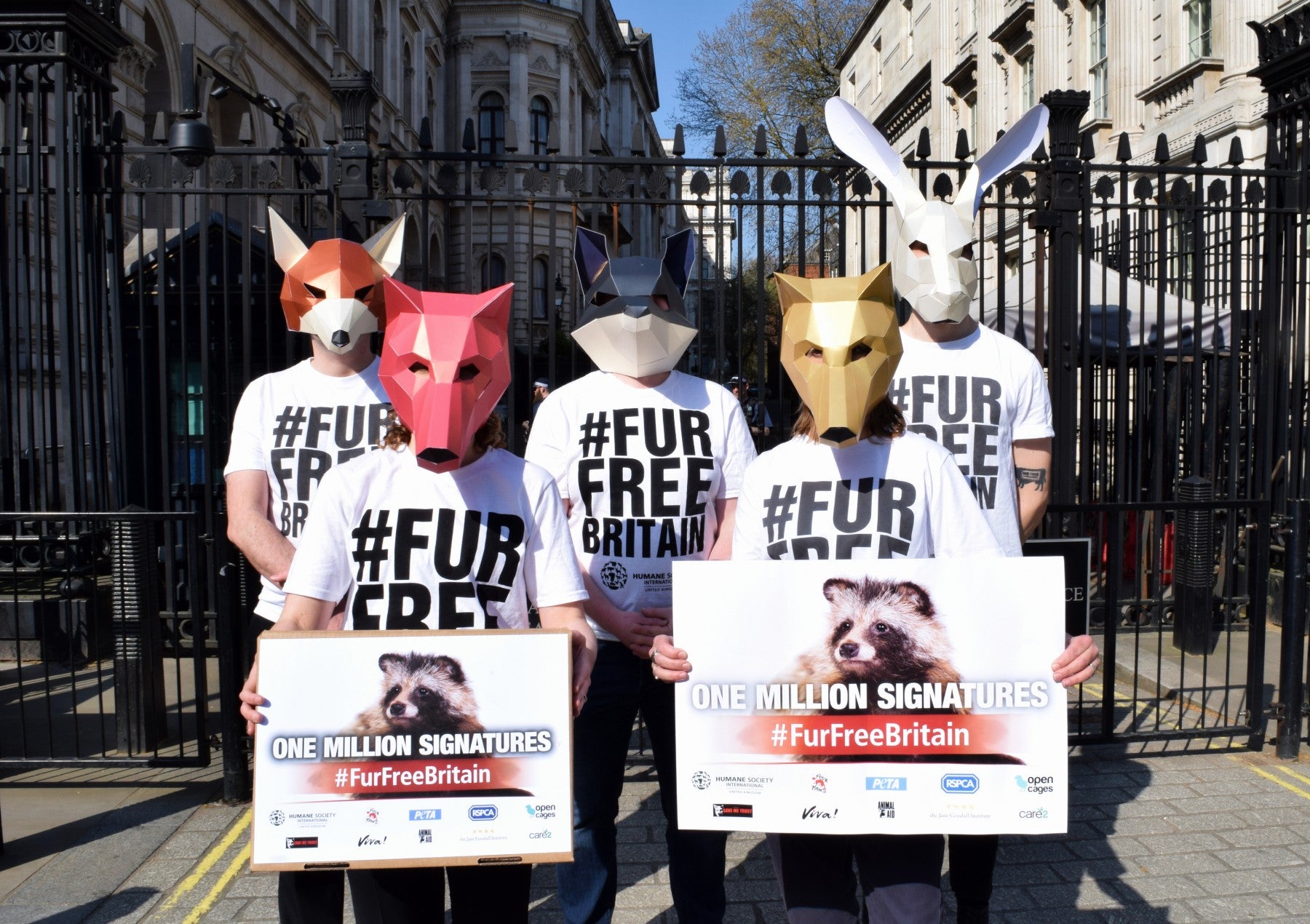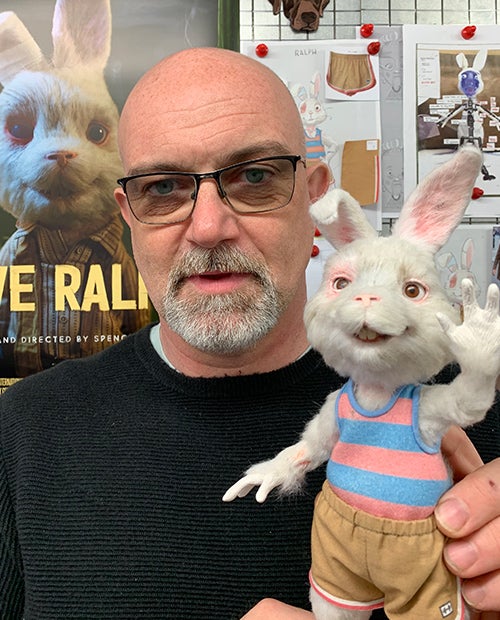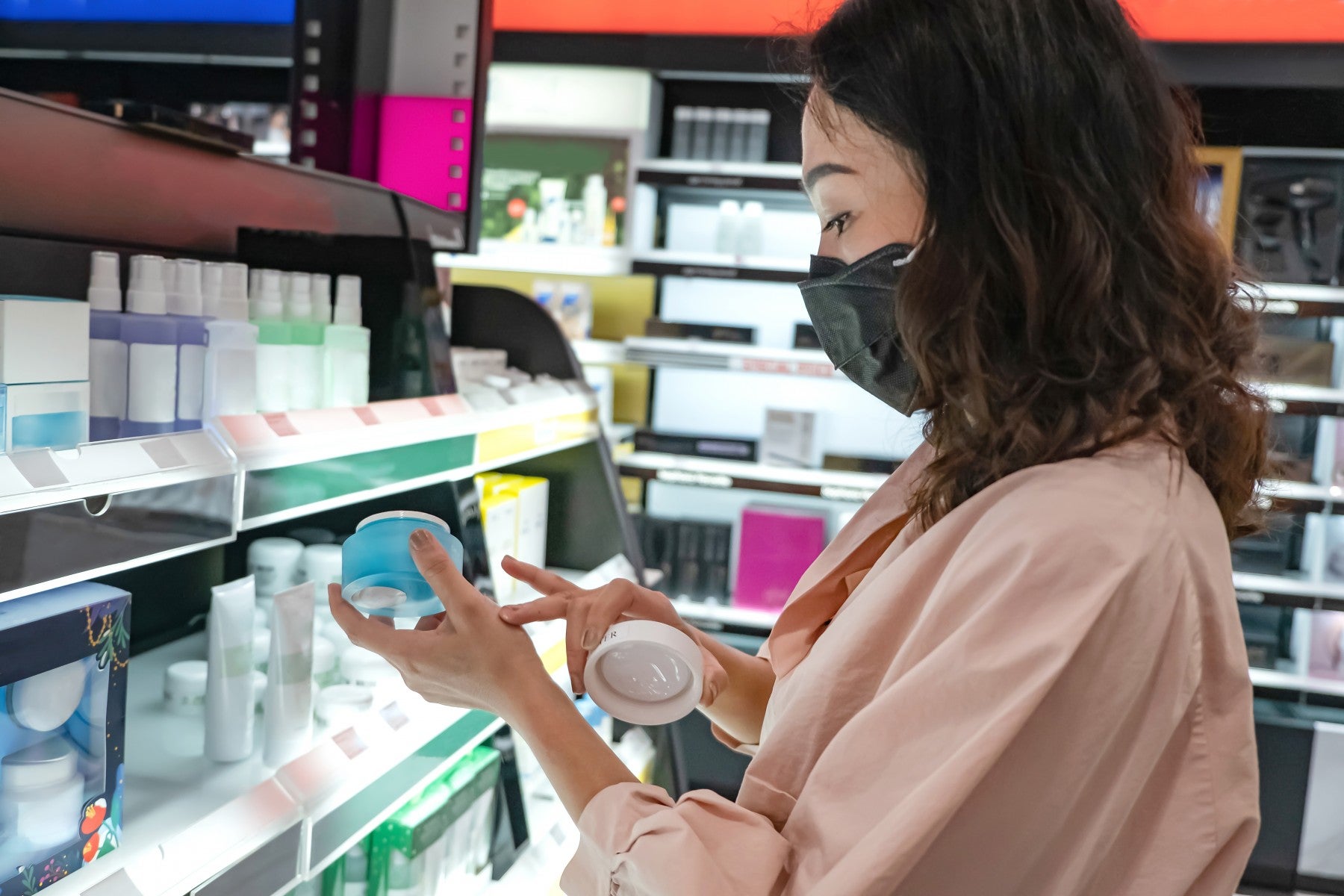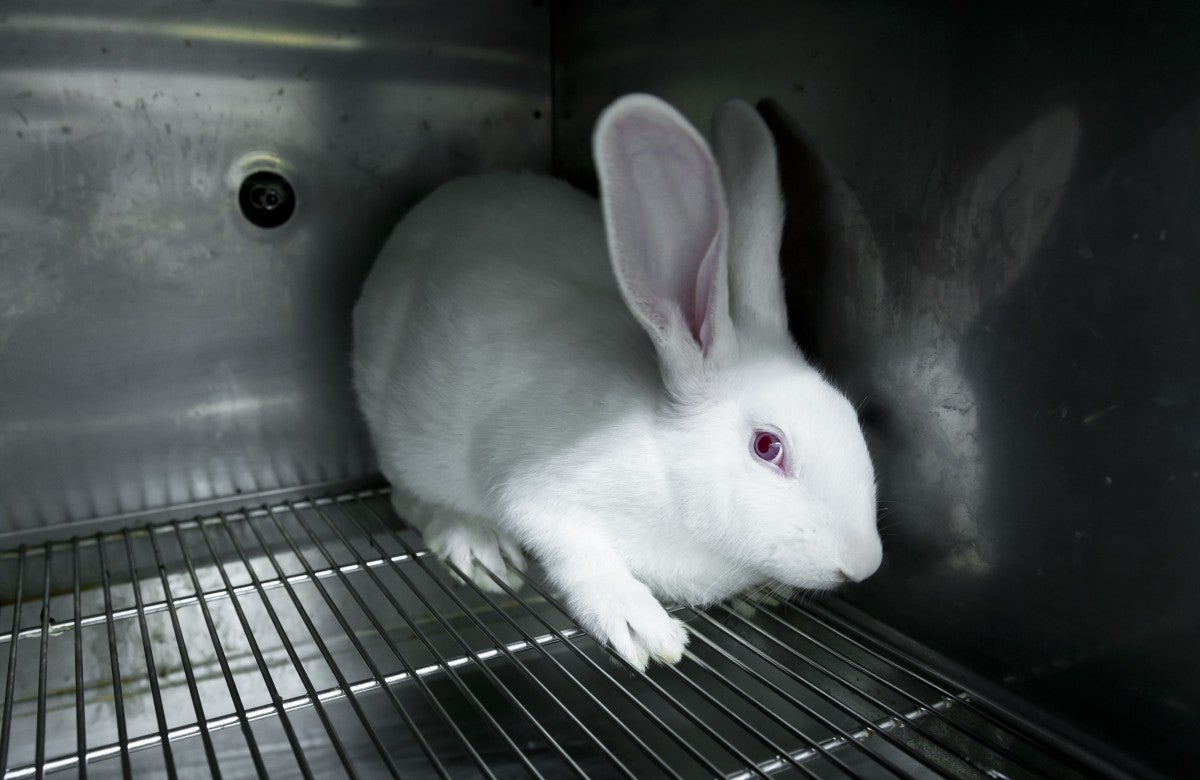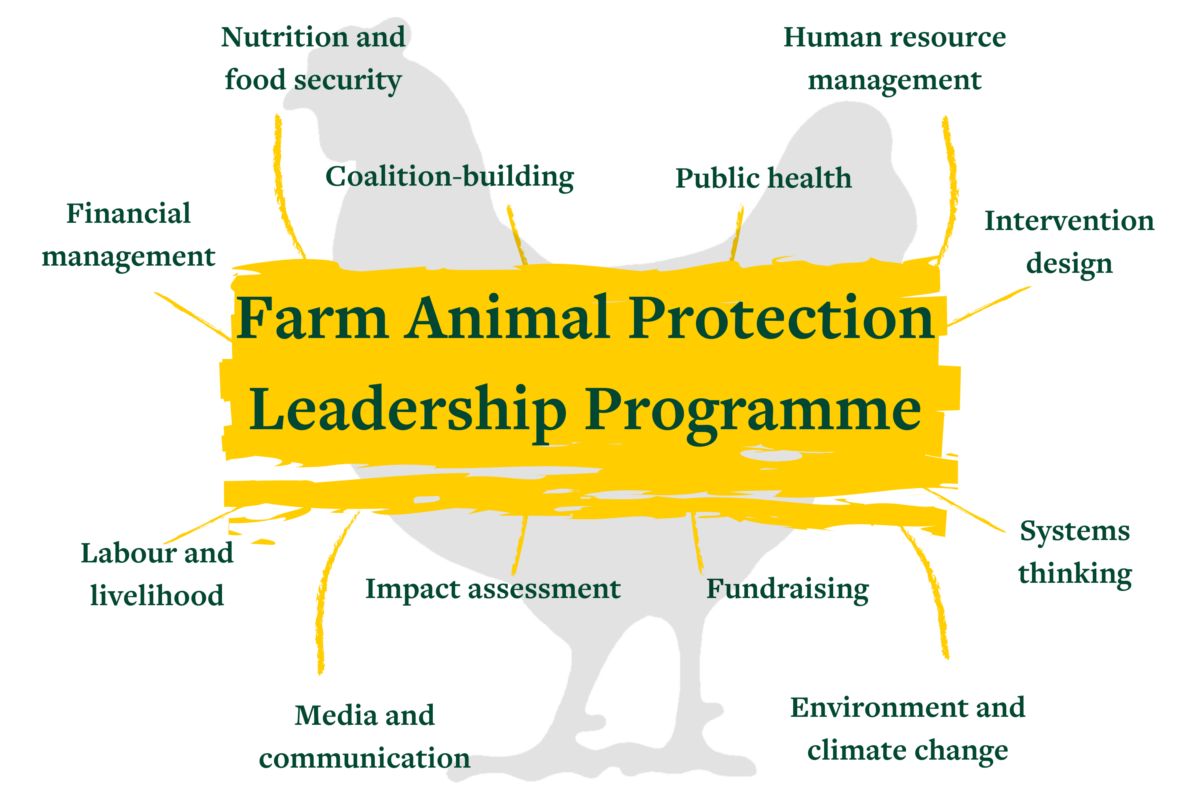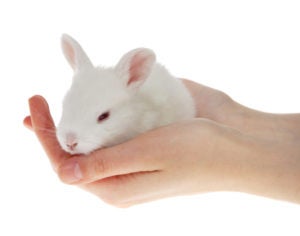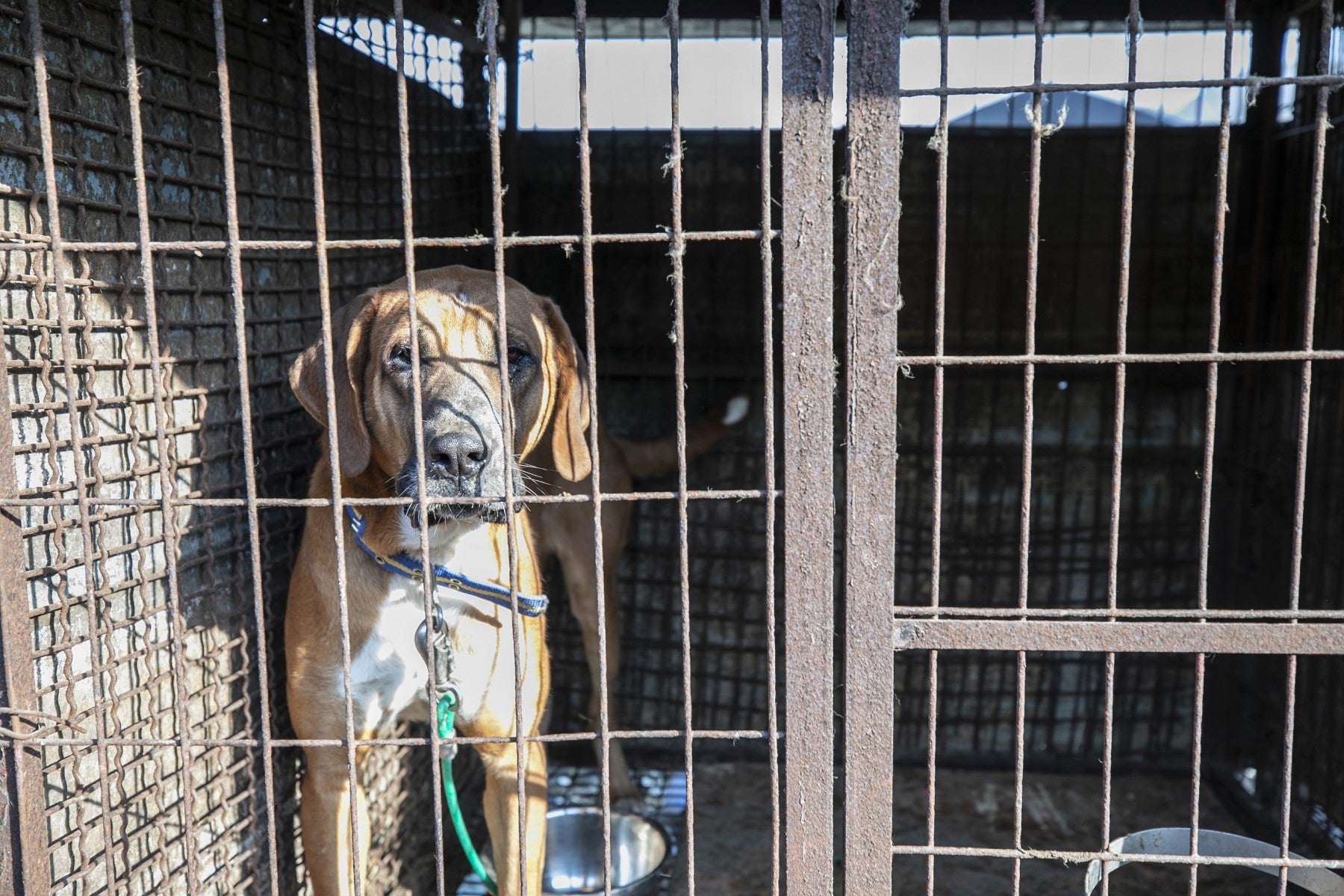
SEOUL—Korean animal protection groups have joined forces to save 50 dogs from being euthanised on a dog meat farm in Yongin city after the facility was closed down by the authorities. The dogs were found by the rescuers locked up in barren metal cages without water or proper food, after the four farmers running the farm had moved off the property following a demolition order by local officials. The farm had been operating in breach of the national Animal Protection Act. Humane Society International/Korea, LIFE, KoreanK9Rescue and Yongin Animal Care Association stepped in and worked together with the local authorities to save the dogs so that the structures could be demolished.
In addition to spending their lives in the misery of a small cage, some of the dogs were caged next to the slaughterhouse on site, and were clearly traumatised from watching and hearing dogs being killed. All the dogs—jindos and mastiffs, breeds often promoted as “meat dogs” by the industry—plus “Tiny Tim”, the farmer’s small pet terrier who he relinquished, are now receiving veterinary care and vaccinations, and will all eventually be flown to HSI’s temporary shelters in the United States and Canada to find adoptive families.
Nara Kim, HSI/Korea’s campaign manager, said “These dogs really needed our help because they would have been euthanized by the authorities without a rescue plan. We knew we had to act fast to save them, so it was wonderful that HSI, LIFE, KK9K and YACA all worked so well together as a team to get these dogs out. These efforts show how much passion there is in South Korea to end the dog meat industry. These dogs were in a pitiful state, skinny and frightened and existing in terrible conditions. It was shocking to see the slaughter area on site too with abandoned electrocution equipment and knives. I am horrified to think how many dogs lost their lives there. The sooner we can end the dog meat industry, the sooner we can see an end to such pitiful scenes of animal suffering.”
Many of the dogs were suffering from malnutrition as well as painful skin diseases and sore feet due to standing on the wire cage floor. Others had also been left with painful and untreated head and ear wounds. A number of the animals were extremely afraid of people, left tightly curled up and trembling in the back of the cage.
In-Seob Sim, president of LIFE, said: “It has been 30 years since the Animal Protection Act was established in Korea, however still so many animals are not protected properly. Government officials should make and implement policies to ban the slaughter of dogs for food. We should no longer subject this misery on future generations of dogs.”
Hyun Yu Kim, founder of KoreanK9Rescue, said: “It is significant that all these dogs are being given the chance of a new life instead of being euthanized or killed at the slaughter house. However, there are still countless dogs out there bred for meat who are still suffering. We are calling for urgent action from the government to introduce laws to ban the dog meat trade and protect dogs like these.”
Miyeon Ki, Yongin Animal Care Association, said: “I am overwhelmed by this life-saving mission for the 50 dogs who have escaped first the crisis of brutal slaughter for dog meat and then the threat of death by euthanasia, but have dramatically found a chance to live again. I think the effort to save lives in any difficult situation is the faith of animal rescue group.”
Yang-Jin Cho, Animal Protection Division, Yongin city said: “The city officials really felt bad for these dogs and hoped that something could be arranged to give the dogs the best chance. So we are really happy that these animal groups were able to help and give the dogs a future.”
Humane Society International/Korea, which has closed down 17 dog meat farms in the country, is campaigning for legislation in South Korea to end the dog meat trade. A recent opinion poll commissioned by HSI/Korea and conducted by Nielsen shows growing support for a ban on the dog meat trade, with nearly 84% of South Koreans saying they don’t or won’t eat dog, and almost 60% supporting a legislative ban on the trade.
Facts:
- An estimated 2 million dogs are kept on thousands of farms across South Korea.
- Most South Koreans do not consume dog meat, and a growing population see dogs only as companion animals.
- Although not part of the culinary mainstream for most people, dog meat is most popular during the Bok days of summer spanning July and August, based on its perceived curative properties during the hot and humid summer months.
- Recent crackdowns by authorities to curb the dog meat industry include the shutting down of Taepyeong dog slaughterhouse (the country’s largest) by Seongnam City Council in November 2018, followed in July 2019 by the closure of Gupo dog meat market in Busan, and a declaration in October last year by the mayor of Seoul that the city is “dog slaughter free”. In November 2019 a Supreme Court found that a dog farmer who electrocuted dogs was in violation of the Animal Protection Act, a judgement that could have huge implications for an industry that relies almost entirely on electrocution as a killing method.
- This farm closure was conducted under COVID-19 health and safety restrictions. At each dog meat farm closure, HSI has a veterinarian test for the presence of the H3N2 virus (“canine influenza”), at the time the dogs receive their rabies, distemper, hepatitis, parvo virus, parainfluenza and Leptospira vaccines. HSI then quarantines the dogs on the farm or at a shelter for at least 30 days and the dogs are health certified again prior to transport overseas, in accordance with international export and import requirements.
Download broll video and photos of the rescue here.
*Nielsen online research conducted August/September 2020. Total sample size 1,000 people across six major cities in South Korea (Busan, Daegu, Incheon, Gwangju, Daejeon, Ulsan) weighted and representative of South Korean adults (aged 18+).
ENDS
Media contacts:
United Kingdom: Wendy Higgins: whiggins@hsi.org, +44 (0)7989 972 423
South Korea: Nara Kim, nkim@hsi.org

